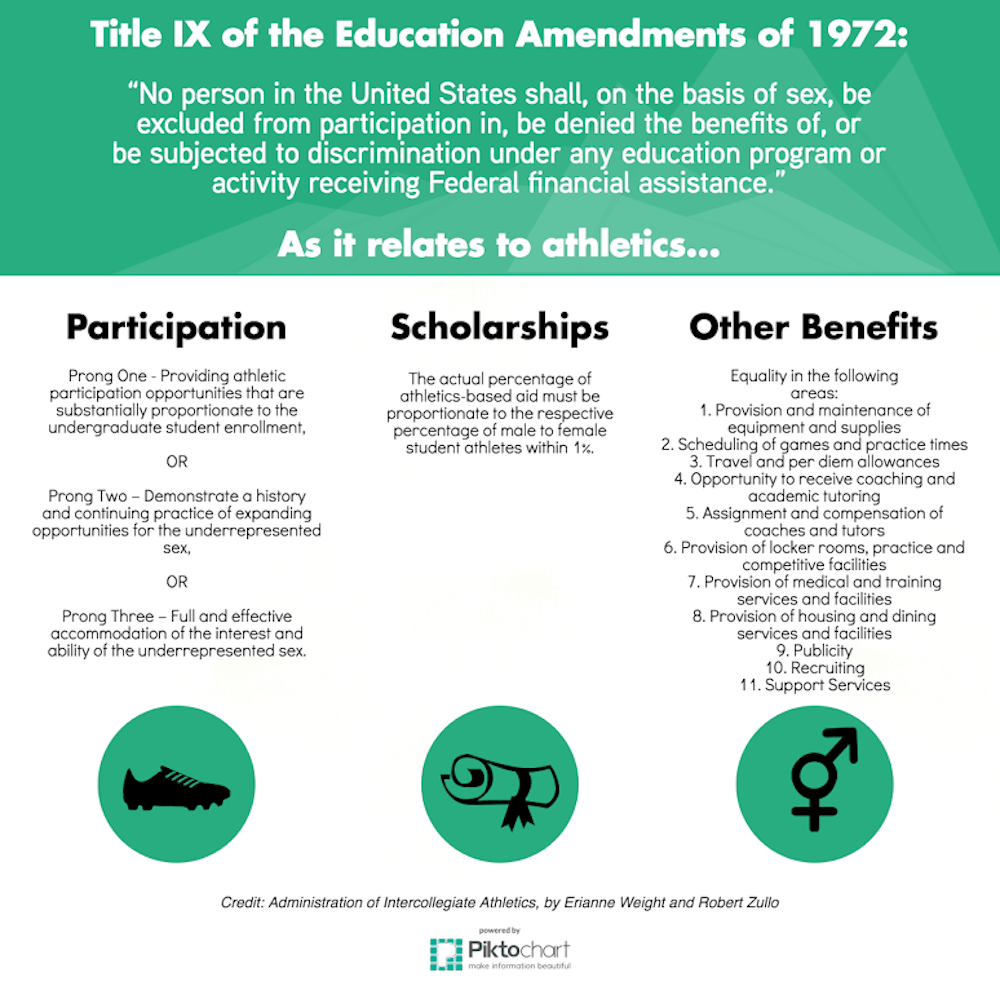If a male club team wants to go varsity at UNC, Title IX does not help them.
“As it stands now, we are not able to become varsity,” said Fred Porter, a senior member on the UNC men’s crew team.
Men's crew is technically a club sport despite the facts that they compete against other varsity teams, have two paid coaches and practice eight times a week — often twice a day.
“It’s not an issue of us not wanting to become varsity,” Porter said. “It would just take a long time of working with the school. It’s not like there’s a petition we can just sign.”
At UNC, there are four varsity women's teams without a male equivalent — crew, field hockey, volleyball and gymnastics. There are two men's varsity sports, football and wrestling, that do not have female equivalents. Football gives the most athletic scholarships of any team at UNC by a double-digit margin.
Almost 60 percent of UNC's undergraduates are women, making the chances of adding another men’s sport low because Title IX compels universities to create more opportunities for women, who are considered underrepresented, in order to achieve gender equality.
“Since our undergraduate student body is primarily women, men are already overrepresented for participation opportunities,” said Barbara Osborne, a UNC exercise and sports science professor specializing in sports law. “Title IX is not measured on a sport by sport comparison. You’re comparing all of the opportunities men have to participate against all of the opportunities women have.”

When the University of Richmond added men’s lacrosse in 2012, they cut men’s soccer and track, citing Title IX as a reason. In 2013, Temple University announced it would cut five men's sports and two women's sports. A press release from Temple's Athletic Department stated that Title IX was a key factor.






